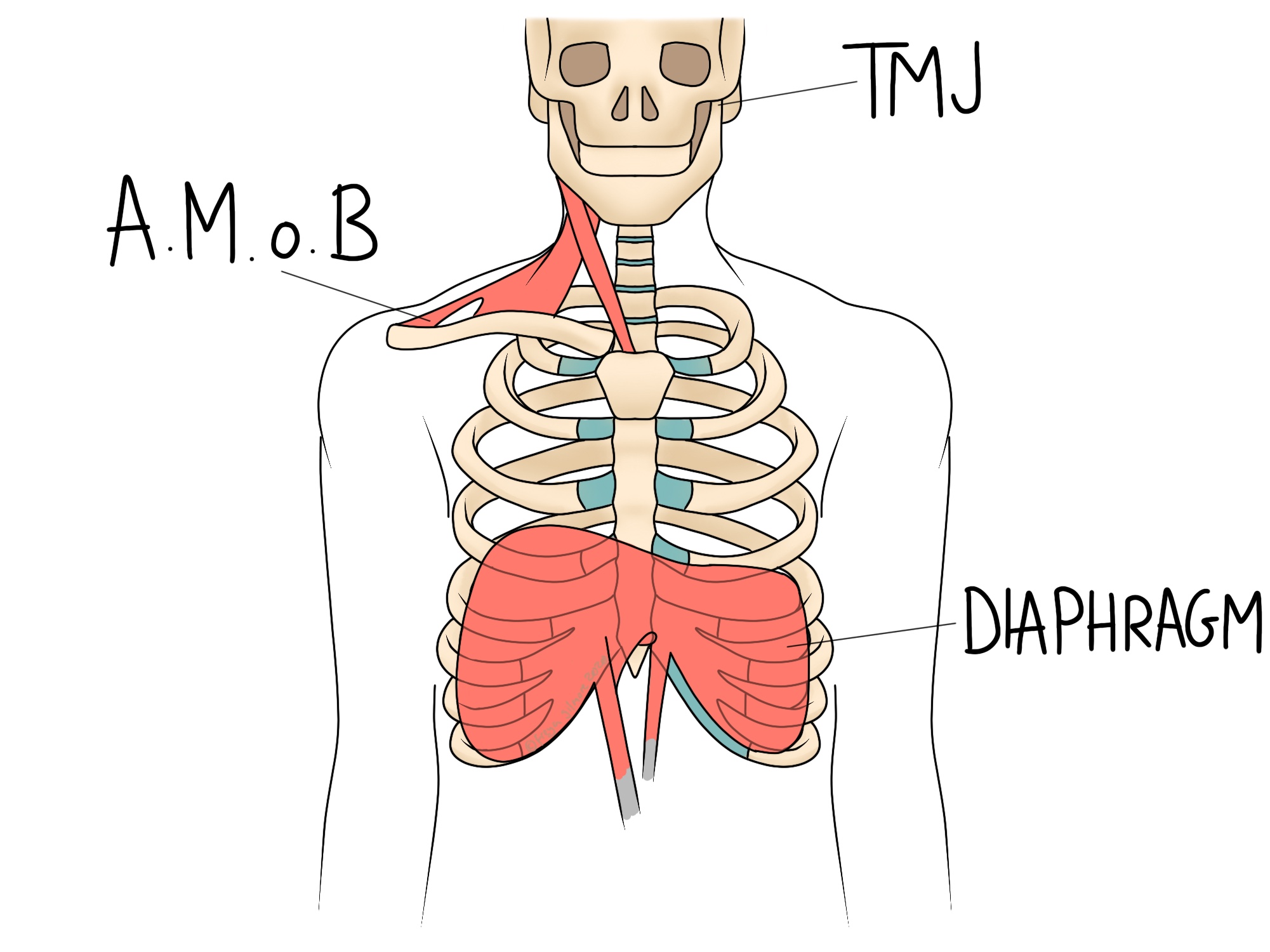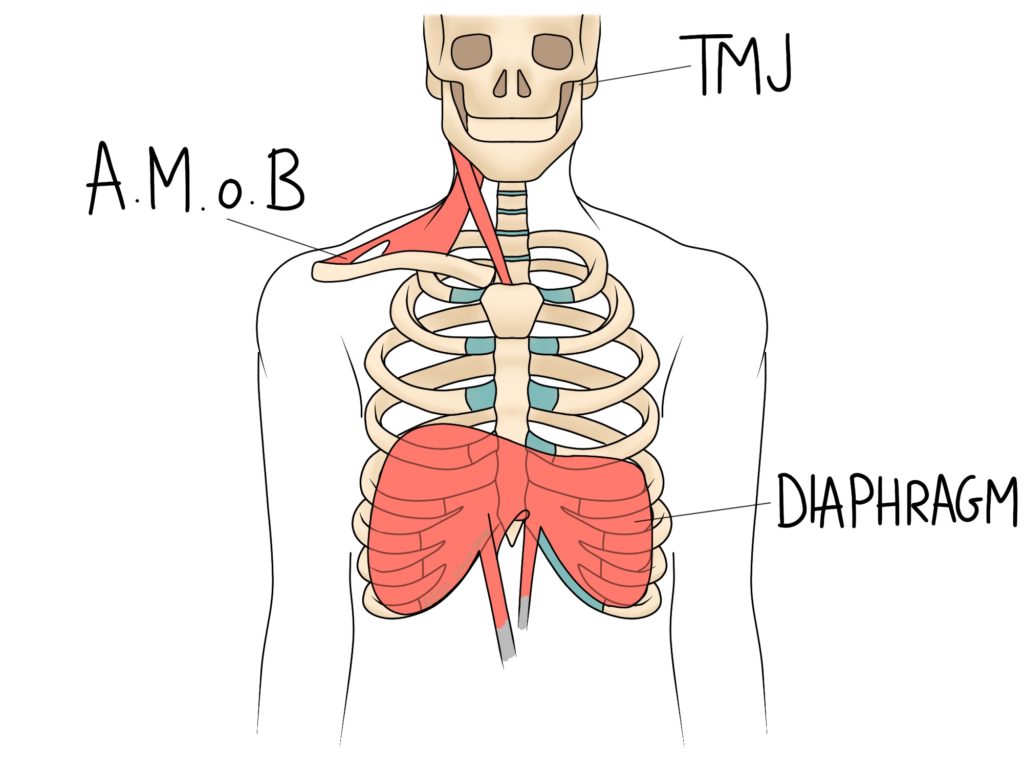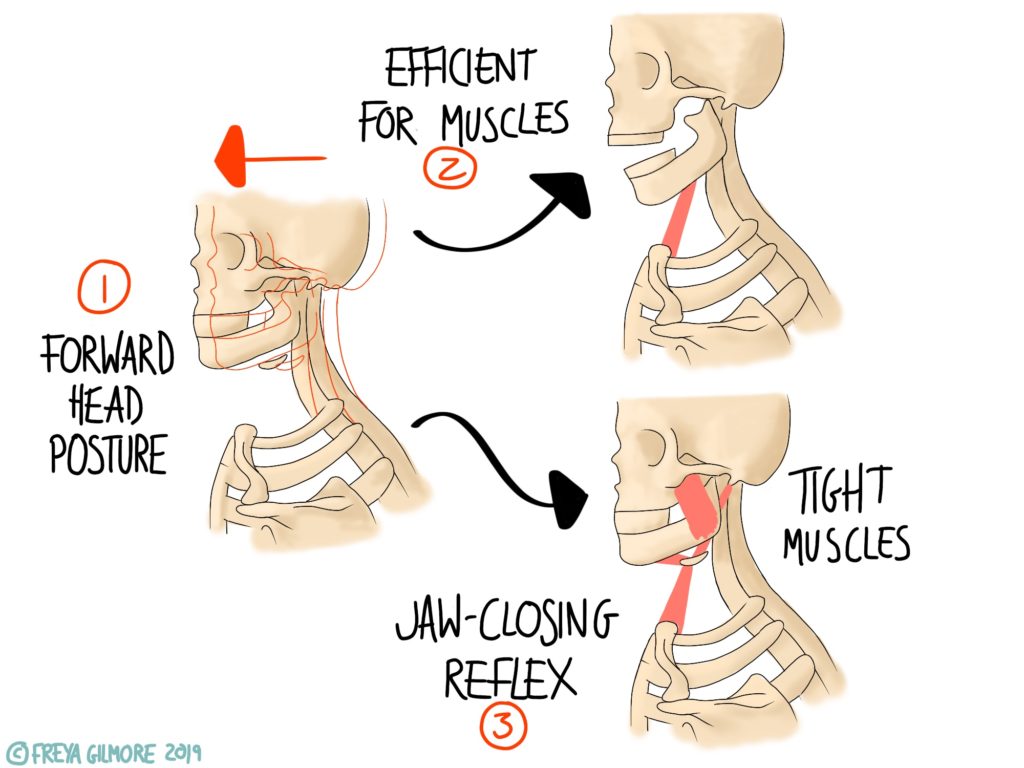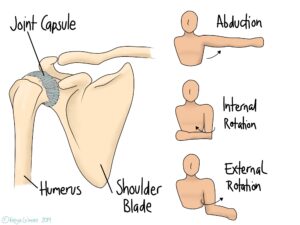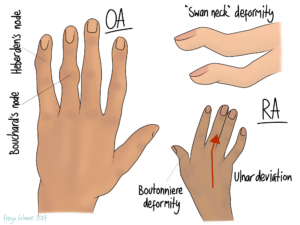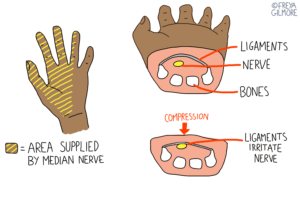Stress and tension go hand in hand. You might find that in times of stress your shoulders rise up to your ears, or you grind your teeth. Maybe you hold your tummy in, although this one is hard to spot. The human body can cope well with short periods of stress with the “fight or flight” response. But when this doesn’t resolve, we get all sorts of aches and pains.
Tension in the shoulders and neck
We hold tension in the shoulders and neck for a couple of reasons. One is the change in breathing that happens when we’re stressed, and another is the defensive posture designed to protect the neck. This is driven by adrenaline and cortisol. Cortisol is a stress hormone also released in diseases such as Cushing’s Syndrome. The long term effect of cortisol as seen in Cushing’s Syndrome is a “buffalo hump”, when fat is deposited at the top of the back. This build up is thought to be another defensive mechanism- the stressed body really wants to protect its neck!
When the muscles in the upper back and neck are tight, they can cause headaches. These could be migraines, tension type headaches, or cervicogenic headaches. Your osteopath is qualified to diagnose and treat cervicogenic headaches, which are simply headaches that originate directly from the neck. Nerves that exit the top of the neck supply the head, and if they are irritated by tight muscles or other structures, they can cause pain. This is typically a diffuse pain that begins at the back of the neck and head and radiates forward. It normally only affects one side at a time, and doesn’t spread much further down than the eye or ear. There are no visual disturbances and no aura or nausea.
Muscular tension is easily managed during treatment and with exercises, but of course addressing the underlying stress would be the true solution. We can help you manage in the meantime.
Teeth Grinding
Following on from the neck, shoulders, and headaches, the jaw is not immune to the effects of stress. Some people grit their teeth or unwittingly grind them when they’re under stress. This could be a primary effect of stress, or a result of neck and shoulder tension.
If your posture changes to protect your neck as mentioned above, the neck itself has to compensate to avoid pointing your head towards the floor. This makes a pull on the front of the neck and into the jaw: the jaw wants to hang open. Most people will subconsciously fight against this and close the mouth, using the muscles of the cheek and jaw to do so. All of this can go by unnoticed until the jaw becomes symptomatic.
Achiness or a generally tense feeling around the jaw can be signs of this. If the muscles have pulled on the disc within the joint, there may also be locking or clicking. This is reversible, but people often don’t know what to do about it. Osteopaths can work into the muscles around the jaw and work back through the pattern of tension into the neck and shoulders. Sometimes a clicky jaw will stop clicking during a single treatment, but it may need repeated sessions to truly resolve.
Breathing and Abdominal Tension
As mentioned above, breathing changes when we’re stressed. One major change is to the function of the abdomen. When we’re breathing properly, movement comes from the abdomen. Particularly during stressful times, this movement can be halted. As a result, the big efficient muscles of the lower ribs do less work, which has to be picked up by the Accessory Muscles of Breathing (AMoB). These smaller muscles in the shoulders are not as efficient, so have to work hard to aid breathing. We circle back to the “tight shoulders” problem.
Some patients find breathing exercises to be a really useful way to restore proper breathing. These exercises can also have an added benefit of providing a bit of mindfulness, which may help tackle the original stress.
How we can help
As mentioned above, all of these areas are within your osteopath’s remit. We can work hands on or less directly on the shoulders, neck, jaw, and abdomen. There are also plenty of exercises we can prescribe you to help manage the effects of tension on a daily basis.
If any of these symptoms resonate with you, get them under control. Book an appointment online now.

